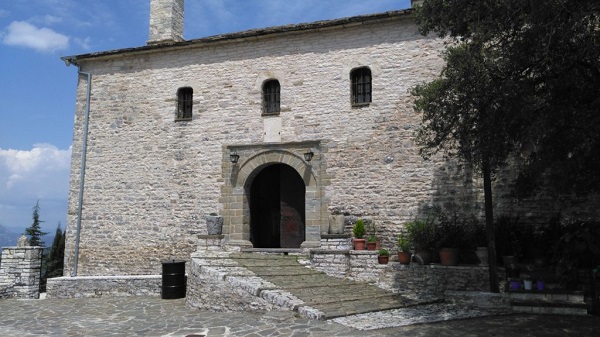A monk is someone who is separated from everybody and attached to everybody
14 February 2017[Previous post: http://bit.ly/2kKefva]
How can quietude, poverty and the renunciation of worldly goods be preserved in such circumstances? If we say that they are to be reduced to a minimum, then, even if the basic needs of the monks are met, it’s almost certain that the preservation of the cultural heritage, hospitality and works of charity will decline steeply. It might be said: “Let them. From a spiritual point of view, they’re not so important as the preservation of peace and quiet. But things don’t seem to be quite like that. Quietude and isolation are, for monasticism, a means of renouncing the secular outlook, but not of estrangement from the company of other people. “A monk is someone who is separated from everybody and attached to everybody” . Monastics are well aware that they are organic members of the Church and of society. They embrace society and pass on to it a genuine Christian outlook and the grace of God. And take from society the best it has to offer. First of all, its own members, the monastics themselves.

Bishop Chrysostomos of Rodostolos, a former head of the Athoniada School once remarked pointedly: “On the Holy Mountain there are only death certificates; there aren’t any birth certificates”. So how are people supposed to get to know monasticism, monasteries, monastics and everything that this encounter involves, unless there’s hospitality, which may extend over a visit of a few hours or several days? We who visit monasteries, either on the Holy Mountain or elsewhere, in order to recharge our spiritual batteries know this very well. It is hardly a coincidence, then, that the Holy Mountain, as a monastic state, has enacted regulations which make the provision of hospitality an obligation for the Holy Monasteries and, at the same time, set out the general guidelines for this. The guest quarters are the locus where the love of monasticism is transfused into the members of the Church and other people, too. It’s the meeting place for the monastic clergy and the laity and is therefore vitally necessary.
Wishing to stress the social and charitable character which the Athonite monasteries have often displayed, Elder Paisios remarks: “They left property to the Monasteries on the Holy Mountain so that people would have bread to eat, because there were no old people’s homes, no orphanages, psychiatric hospitals or even charitable foundations. They gave large tracts of land so that the Monasteries would have something to give lay people in need. Do you know how many people the Monasteries helped during the [German] occupation? Very many… This is why there were feasts at the Monasteries when the Saint’s day was celebrated, so that people would have a bit of fish to eat” . It’s widely believed that as long as monastery property, and that of the Church in general, remains within the jurisdiction of the Church or the Monasteries, then it truly belongs to the people in the sense that it’ll always be there to serve their needs. When it’s expropriated, then, usually, it’s either privatized by those in power, or those without visible means of support, to whom it’s given, sell it and so, once again, it’s broken up and lost. In times of economic crises, such as the one that Greece, and Europe in general, is going through at the moment, Church and monastery property may be the last refuge for people to find a source of basic necessities to support themselves.






